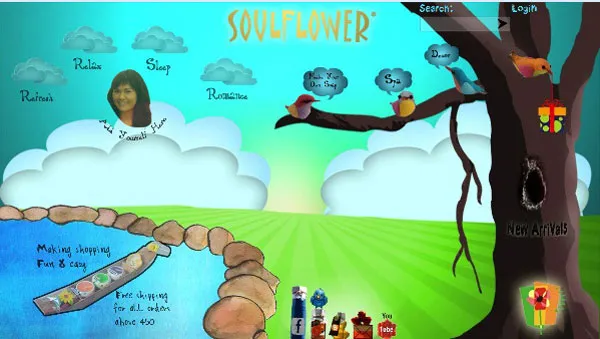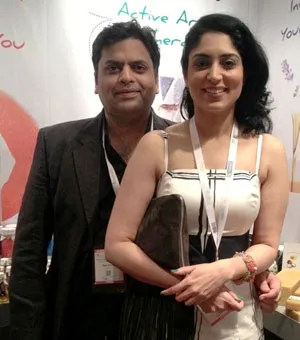Much before The Body Shop & Forest Essentials came to India, there was Soulflower
We recently saw Vivel soap telling us about the benefits of having aloe vera and fruits in the bathing bar. But they are not the first ones to be singing this tune, and we suspect if they will be the last ones either. The benefit of natural ingredients in enhancing beauty is now a well-known and accepted fact. However, much before The Body Shop, Forest Essentials or even Mother Earth made an appearance in India, Amit Sarda spotted the opportunity in selling beauty products with natural ingredients. He founded Soulflower along with Natasha Tuli in 2001, to sell spa and aromatherapy products in the market.

“The uniqueness of Soulflower lies in all the handcrafted soaps, blended oils and spa treatments resurrected from ancient recipes. All Soulflower products are made by hand in India and Thailand by really passionate people,” explains Amit. When asked about the market opportunity in 2001, when he started, Amit says there was no clear market as such, but just an opportunity. The space was very unorganised and most brands present in the space were being imported into the country, he shares. Soulflower started out by participating in consumer exhibitions and using PR as a tool to publicize their products. Another step they took early on, was to supply to ShoppersStop, which continues to be an important retail point for Soulflower.
From a handful of products, today the bouquet of products at Soulflower includes 42 soaps, 8 bath salts, 14 massage oils, 21 essential oils, and 9 carrier oils. Soulflower has its own store at Inorbit Mall, Mumbai and are today available in over 180 retail outlets across India. Retail sales still contribute to the bulk of sales for Soulflower. It also offers tailor-made products for spas or salons and currently caters to B Blunt, Della Resorts, Sahara Hotels, Intercontinental, The Lalit, The Orchid Hotel, Godrej properties, Kalpataru projects, Nahar projects, among others.

While there was no competition when Soulflower started a decade back, things have changed since. The present market size of natural beauty products in India, says Amit is worth Rs 500 crore which is growing at 30% YOY. And along with niche brands like Soulflower and Nyassa, big brands like Forest Essentials, The Body Shop and Lush are also vying for customer attention in the market. To standout, Soulflower claims to be a 100% vegetarian company and sells vegan products as well. The oils and soaps they sell are their best sellers, says Amit.
The Soulflower customer, says Amit, are people with high aspiration, looking for something pure that can soothe their body and soul. The age group of customers for the product falls between 16-45 and the female-male ratio is 60:40. Talking about the income profile, Amit says a Soulflower customer would be earning Rs 4 lakh and above if they come from a city like Mumbai. Most advertising and marketing for the products have been done either through digital marketing, in-store promotions and word-of-mouth.
Amit claims their growth has been phenomenal but his entrepreneurial appetite is yet to be satiated. The company currently has production facilities in Mumbai and Bangkok. Another important contributor to their sales is has been ecommerce and as of date Soulflower retails with 85 ecommerce sites in India. Sales from ecommerce contribute to 10% of their total sales, he says.
Going forward, Soulflower has plans to setup distribution across the country in order to address the opportunity in the semi-organised space. Corporate gifting is the next big thing on their mind, and they will also continue to talk to the hospitality and spa industry. While establishing a market for products of Soulflower was a challenge in metros, now the challenge is bigger in smaller towns, Amit says. He hopes to reach 1,500 retail outlets by the 2015.






